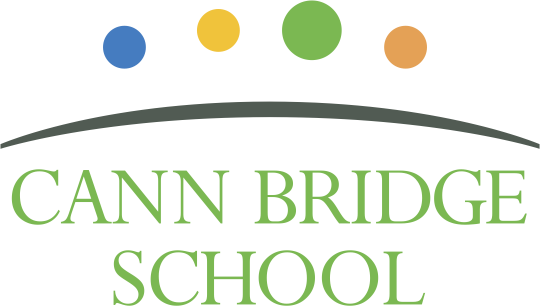SEN INFORMATION REPORT
The Government has asked all Local Authorities in the UK to publish, in one place, information about the services and provision they expect to be available in their area for children and young people from 0 to 25 who have Special Educational Needs and/or a Disability (SEND). This is known as the Local Offer Click here for our SEN Information Report December 2022
Plymouth Local Offer
In Plymouth, the Local Offer can be found on the SEND Local Offer – Plymouth Online Directory
What follows is a brief description of what a child coming to Cann Bridge School can expect to be provided and how they can access additional services to help support their development and learning.
At Cann Bridge School we cann…
• Promote a high quality learning environment.
• Deliver high quality learning from a highly skilled, well trained staff.
• Provide every pupil with a high staff ratio to meet their individual learning needs.
• Provide access to the National Curriculum differentiated to each pupil’s learning needs.
• Tailor the timetable to meet learning, developmental and emotional needs of each individual.
• Ensure each pupil has a Learning Champion to advocate for them within the class and ensure all staff are aware of any specific needs the pupil has.
• Provide access to appropriate support services, through referral, on request from the pupil, school staff or parents.
All pupils who attend the school will have undergone assessment for an Education Health and Care Plan (EHCP).
The ECHP will outline the needs of the child in terms of educational input required and the EHCP will place a requirement on both the National Health Service and Children’s Social Care to complete an assessment of needs and to clarify what is required to meet those needs in order for education to be delivered. Once this is completed there is a statutory duty on the three agencies to make sure all the child’s needs are met through appropriate delivery, coordinated by the agencies.
In order to find out more about our School Offer for SEND please click on the links below…
Definitions of Disability and SEN
Teaching and Learning Assessment Policies
Student Voice
Specialist facilities
School Staff
Working with other services
Definitions of Disability and SEN
The Equality Act 2010 states that a person has a disability if they have a physical or mental impairment and the impairment has a substantial and long-term adverse effect on their ability to carry out normal day-to-day activities.
A physical or mental impairment includes…
• Learning difficulties
• Sensory and Medical conditions including visual or hearing impairment, epilepsy, diabetes, more severe forms of asthma and eczema
• Specific learning difficulties, including dyslexia
• Speech, language and communication impairments including conditions on the Autism Spectrum Continuum
If the impairment has a substantial and long-term effect on a person’s ability to carry out normal day-to-day activities it may amount to a disability.
A young person has special educational needs if he or she has a learning difficulty or disability which calls for special educational provision to be made for him or her.
A young person has a learning difficulty or disability if he or she:
(a) Has a significantly greater difficulty in learning than the majority of others of the same age, or
(b) Has a disability which prevents or hinders him or her from making use of facilities of a kind generally provided for others of the same age in a mainstream school.
At Cann Bridge School all the pupils have Severe Learning Difficulties (SLD) as identified by an appropriate medical practitioner or an Educational Psychologist following assessment. You may also hear the phrase Severe Learning Disability which is the same but used more by the medical and social care professionals while Learning Difficulty is used more in education. This category of educational needs is to do with cognitive impairment and means that your child will be working quite a long way behind most children of a similar age.
Cann Bridge also has provision for pupils with Profound and Multiple Learning Difficulties (PMLD) and pupils with Complex Learning Difficulties and Disabilities (CLDD). PMLD pupils will have a high degree of additional physical impairment making it difficult to access the world, CLDD pupils will at least one additional learning difficulty, such as autism or foetal alcohol syndrome, which makes their severe cognitive difficulty more complicated.
Teaching and Learning
Learning takes place in purpose built classrooms designed to allow whole group, small group and 1:1 teaching throughout the day.
The class size will be around eight pupils per class but this does increase or decrease a little depending on the level of needs in the class. The aim though is to never exceed ten pupils in a class. Each class has a Teacher and two Teaching Assistants (TAs) and this provides the core of an educational class team. In addition there will be further Teaching Assistant support allocated to the class, based on the needs of the pupils in the class. Currently the staffing at the School is, on average, one teacher to eight pupils and one TA to every two pupils.
The learning environment includes all areas of the school and the pupils also have access to spaces for calm contemplation and quiet time. This is in addition to more specialist facilities at Cann Bridge and across the Tor Bridge Partnership site.
The school curriculum is designed to meet the needs of the pupils and to provide a broad range of learning opportunities and experiences. The learning objectives are specific to each pupil ensuring that precise assessment
can be made to develop further learning. The aim of the curriculum is to equip learners with theknowledge and skills they will need to be as independent as possible in adult life.
In all classes there is a Total Communication environment and this philosophy also extends across school staff. The basis of this philosophy is that all behaviour is communication and it is important that we recognise behaviour for what it is intended to communicate and not just the behaviour itself. In this way wecan try to interpret what the pupil is saying from their actions as well as from more formal communication.
Assessment
Pupils are assessed all the times by staff, and this assessment relates to their learning, communication, socialand emotional wellbeing, behaviour and physical development.
The results of ongoing assessments are formalised into an assessment scheme. This is a data base of developmental milestones and the information is used to ensure that the pupils learning can always be linked to cognitive and physical development.
Pupils will also be assessed by other professionals from time to time and on request if it is felt necessary.
Policies
The School has a range of policies of which a number are published on the website. These are to inform thereader about how the School carries out a large range of functions and also how it delivers services and how issues can be raised and are dealt with by the school.
If you have any questions about School policies please contact the School and the relevant person to deal with the enquiry will be found.
Specialist Facilities
Cann Bridge School provides a number of Specialist Facilities as part of the offer to pupils with SEND.
These may not be accessed by all the pupils at all times and some pupils may never require them but if there is a need then it can be met.
School Staff
The school provides a specialist teaching staff all of whom have experience and qualifications in working with pupils with additional learning needs.
All staff are supported in the use of Makaton, with lead TAs and Teachers completing the two day Makaton course. All teachers will complete the Picture Exchange Communication System (PECS) training and the specialist TEACCH programme for working with pupils with autism. All staff complete training in Positive Behaviour Support which compliments the philosophy that all behaviour is communication.
The school has a qualified nurse on site all day, and seeks to ensure that a number of TAs in the Phase 1 have paediatric first aid training and TAs in Phase 2 and Phase 3 have first aid training; this training is also offered to the teachers at the school.
ADDRESSCann Bridge School, Miller Way, Plymouth PL6 8UN
PHONE01752 207909

